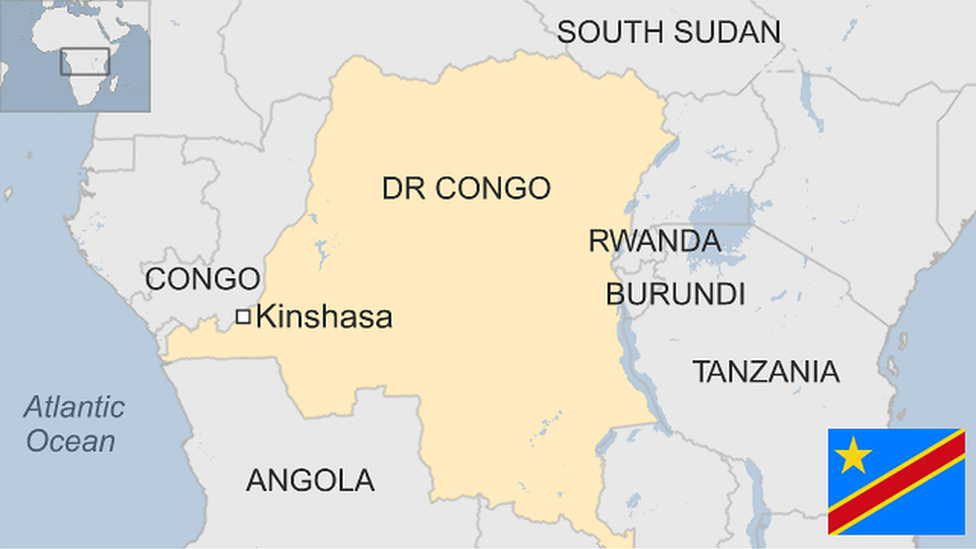What ‘Dr Love’ says about DR Congo
- Published
Meet 'Dr Love' the health app for young people in Africa
"It's called Dr Love", says Aimé Lokulutu. Doc-teur Love, to be precise - in the French way. It's a smartphone app to help people in the Democratic Republic of Congo find answers to awkward questions about sex.
Dr Lokulutu is proud of his creation: It's a Congolese solution to a Congolese problem. Talking about sex, he tells me in his deep, gravelly, Barry White voice, is often taboo.
The Dr Love app is close to his heart. Before he qualified as a doctor he'd got his then girlfriend pregnant. He'd heard that if a woman took two anti-malaria tablets before sex they would act as a contraceptive.
His son, now 21, is a product of this wrong information. So he's out to make sure others get it right.
But Dr Lokulutu, like many Congolese people, has a problem. He needs investors. When protests loom, the government switches off the internet, so he and his staff are unable to work.
"In this context, nobody will give you money. It's impossible to plan because nobody knows what's going to happen tomorrow," he says.
The protests stem from President Joseph Kabila's reluctance to leave power. His second mandate ended more than a year ago and the constitution says he can't have a third. But he's still there.
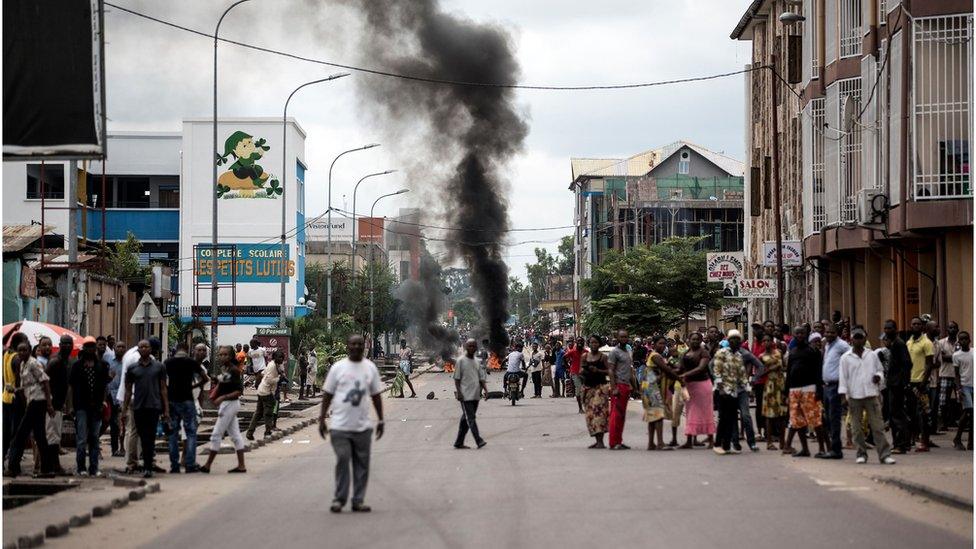
Congolese people have been protesting against President Joseph Kabila, who they say is holding the country back
He says he needs another year as president, in order to complete a census and prepare properly for elections.
The opposition says he had 15 years to do that before his second mandate ran out. They want to hear him say out loud that he will step down.
Meanwhile - like Dr Lokulutu's business plans - this country is on hold. And there's so much catching up to do.
Buried treasure
One journey we made - through forests in the east - took a whole spine-numbing day. On a good road it would have taken an hour.
You could fit Luxembourg into this country 900 times. But Luxembourg has twice as many kilometres of tarmac.
Kinshasa's 'vanishing' road
Schools and hospitals - where they exist at all - urgently need investment.
And DR Congo has the buried treasure to pay for it.
It has huge reserves of copper and diamonds and is the world's main producer of cobalt - the mineral needed to make the batteries for the electric cars we're rushing to buy.
Instead, the Congolese are looking in their rear-view mirror. And what they see approaching is a return to instability and conflict.
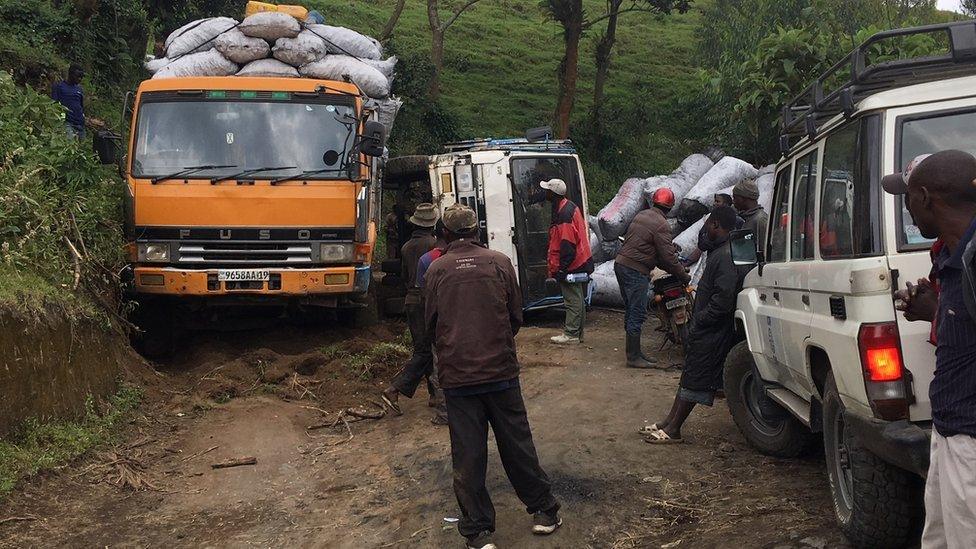
Roads in DR Congo are often in a terrible state, leading to frequent accidents
The last war ended barely 15 years ago, and for many, memories of it are still fresh.
Eastern DR Congo is a two-hour flight from the capital, Kinshasa.
Government control there is weak. Militias still hold sway, and a map by a group monitoring them, external looks like patchwork of more than 120 zones.

DR Congo: What you need to know
Civil war broke out in the Democratic Republic of Congo, then Zaire, in 1997
That year, Laurent Kabila took power before being assassinated in 2001
He was succeeded by his son, Joseph
The war ended in 2003, with six million people dead
After serving two terms, Joseph Kabila was due to leave office in 2016 but remains in power

The United Nations is a major player here. With churches and charities, it tries to fill the gaps left by an overstretched and struggling government.
General Derrick Mgwebi heads the UN peacekeeping force. It's the largest in the world but as the general knows, there are limits to what it can achieve.
Addressing the nation on Radio Okapi, a station also funded by the UN, he said that without a democratic transition, without an effort to end the political deadlock, there will always be conflicts.
And then there are those who are fleeing the violence - the internally displaced people, or IDPs.
Just last year alone violence in the central Kasai region forced another million people into internal exile.
DIY education
But this isn't the message I want to leave you with.
Because it's never the message I leave Congo with.

Find out more
From Our Own Correspondent has insight and analysis from BBC journalists, correspondents and writers from around the world
Listen on iPlayer, get the podcast or listen on the BBC World Service - or on Radio 4 on Saturdays at 11:30 and Thursdays at 11:00 BST

Let me tell you about Vumi. She lives near Uvira, a town in the east recently attacked by a militia.
She's 17, and can't afford to go to school. Others girls in her town fear they'll be attacked on their way to lessons. They prefer not to wear uniform.
So they're learning by radio. In village halls they sit - quiet and attentive. The radio imposes discipline. Arrive late - or talk - and you'll miss the lesson.
Could broadcasting school lessons solve Africa's education crisis?
Vumi once saw doctors heal her mother, so now she wants to become a doctor. She wants to catch up on the years she's lost to the violence around her.
The country might be on hold, but she's in a hurry.
So for Aimé, for Dr Love, for Vumi, you have to hope the politicians can put peace first.
You have to hope that they can find a way to make the Democratic Republic of Congo into a Democratic Republic.
- Published31 December 2017
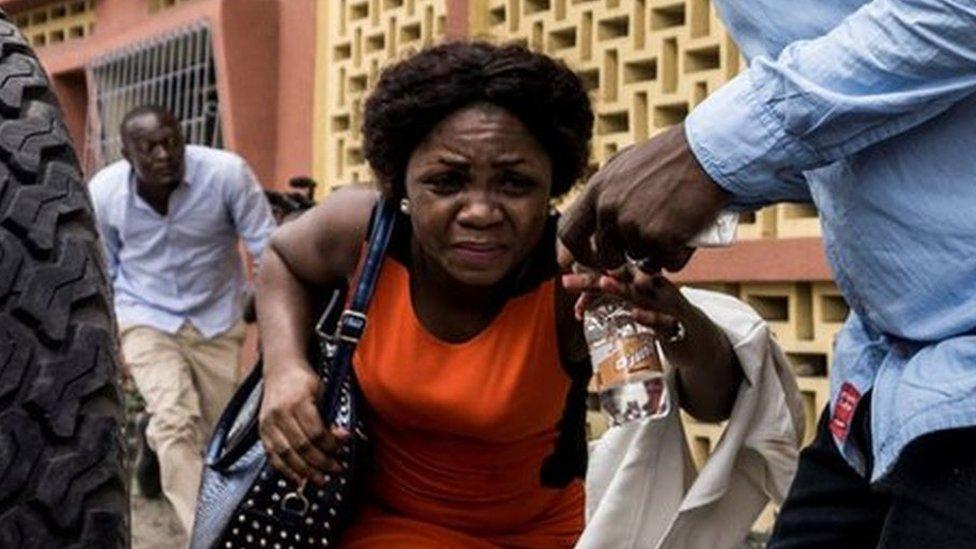
- Published12 December 2017
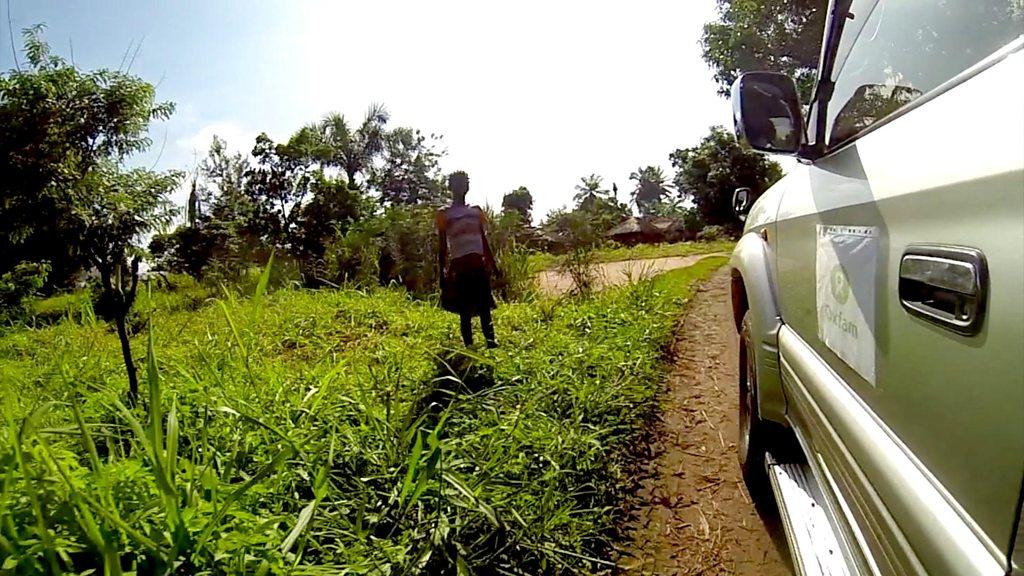
- Published6 December 2017
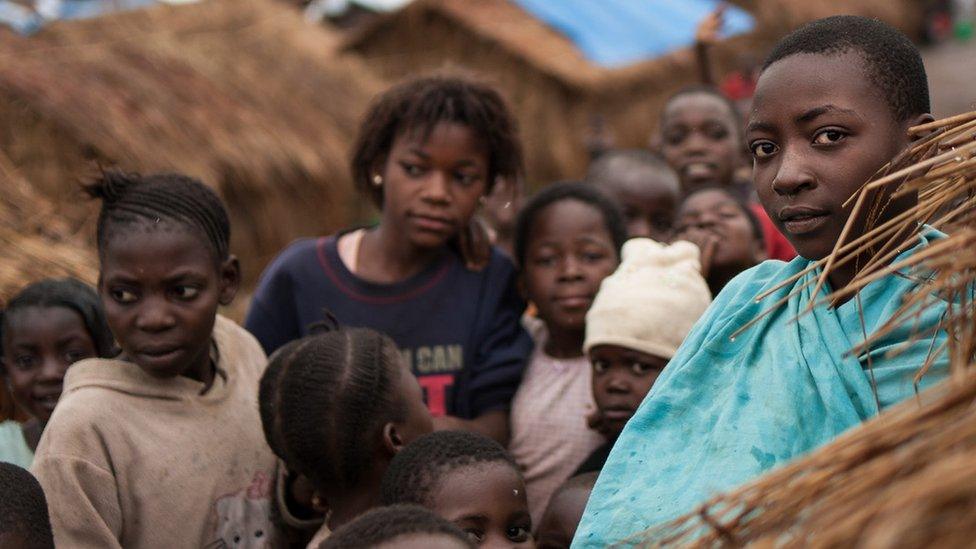
- Published9 October 2013
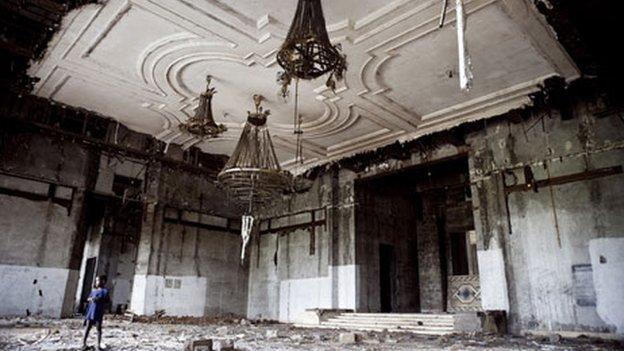
- Published31 January
